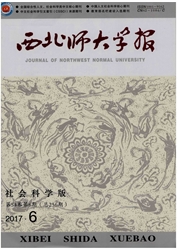

 中文摘要:
中文摘要:
个体德性培育过程实质上是社会普遍价值观念与道德规范内化为个体道德品质与行为准则的过程,我国古代书院在个体德性培育方面,遵循道德心理学“知-情-意-行”的发展规律,即通过系统的道德知识学习、丰富的道德情感浸润、坚定的道德意志磨砺,最终达成生徒积极的道德行为践履,为社会培养出了一大批“明乎人伦、传道济民”的理想人才。深刻剖析书院个体德性培育机制,对现代社会思想政治教育有着现实的借鉴意义。
 英文摘要:
英文摘要:
The process of individual moral cultivation is essentially the process of the universal values and moral norms of society which change into the individual moral quality and code of conduct. Chinese individual moral cultivation in the ancient academies followed the law of development of moral psychology "knowledge-emotion-will-practice ", that is, learning through the system of moral knowledge, experiencing rich moral emotions, tempering moral will and finally reaching a positive ethical practice of students, thus to cultivate a large number of ideal talents who can "understand moral and help people". Deeply analyzing the individual moral cultivation in ancient academies has a valuable reference to ideological and political education in modern society.
 同期刊论文项目
同期刊论文项目
 同项目期刊论文
同项目期刊论文
 期刊信息
期刊信息
